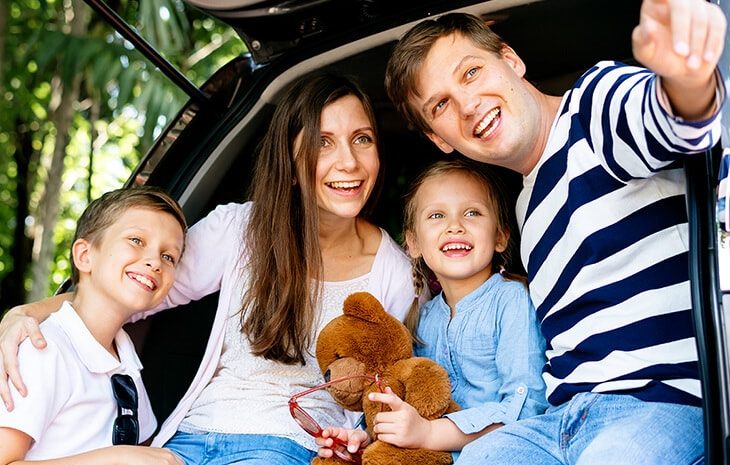I’m going off to see a lady,” even though you was within the a relationship currently
“It’s cliche to say, but it’s a numbers games,” Lundquist contributes. “So that the expectation is, the chances are pretty a you to definitely [a big date] commonly bring, however,, you are aware. Almost any. You gotta do it.”
Finkel, having their part, throws it a little more bluntly. So you’re able to him, there was something that many of these wistful romantics, dreaming about the changing times out-of yore when individuals fulfilled in actual lifetime, are missing: you to Tinder, Bumble, and you may Hinge-such as for example eHarmony, OkCupid, and you can Meets in advance of them-exist due to the fact appointment in real world is actually tough.
“I am not saying proclaiming that it is really not a fuss to go on bad schedules. It’s an annoyance. You could be hanging out with your buddies, you might be sleep, you may be studying a text,” he says. But, Finkel contributes, singletons away from generations earlier carry out “break out the brand new earth’s tiniest violin” for teenagers which grumble regarding Tinder schedules are an undertaking.
“It is such, Ugh way too many dates, plus they are just not you to definitely fascinating,” Finkel adds that have fun. “It once was difficult to find anyone to day!”
Tinder have indeed aided people fulfill anybody else-it has got extended brand new started to from singles’ internet sites, assisting relationships between those who you’ll never have entered routes if not. This new 29-year-dated Jess Flores from Virginia Seashore had partnered so you can the girl first and just Tinder big date earlier this October, and she claims it probably would have never ever met whether or not it weren’t towards the software.
But other users complain of rudeness even in early text interactions on the app. Or the just as common tirade of insults from a match who’s been rebuffed, as Anna Xiques, a 33-year-old advertising copywriter based in Miami, experienced. In an article on Typical when you look at the 2016 (cleverly titled “To the One That Got Away on Bumble”), she chronicled the time she frankly told a Bumble match she’d been chatting with that she wasn’t feeling it, only to be promptly called a cunt and told she “wasn’t even pretty.” (Bumble, launched in 2014 with the former Tinder executive Whitney Wolfe Herd at its helm, markets itself as a more women-friendly je christian cupid zdarma dating app because of its unique feature designed to curb unwanted messages: In heterosexual matches, the woman has to initiate chatting.)
Like the anthropologist Helen Fisher, Finkel believes that dating apps haven’t changed happy relationships much-but he does think they’ve lowered the threshold of when to leave an unhappy one. In the past, there was a step in which you’d have to go to the trouble of “getting dolled up and going to a bar,” Finkel says, and you’d have to look at yourself and say, “What am I doing right now? I’m going out to meet a guy. Now, he says, “you can just tinker around, just for a sort of a goof; swipe a little just ‘cause it’s fun and playful. And then it’s like, oh-[suddenly] you’re on a date.”
Nonetheless, she claims, “we might have never interacted got it not come to own Tinder. He’s not going out non-stop. I’m not meeting right through the day. The reality is, if he or she is out within a bar, he or she is hanging with his family members.
“I am not saying stating that it’s not a publicity to take crappy dates. It is a nuisance. You could be hanging out with your friends, you may be sleeping, you may be studying a text,” he states. However,, Finkel adds, singletons from generations earlier create “bust out the new earth’s minuscule violin” having young adults which grumble in the Tinder schedules is a task.
The that nastiness will be chalked up to matchmaking apps’ importance of remote, electronic communications; the new vintage “unwanted manhood picture taken to an unsuspecting matches” circumstance, such as for example
Many tales out of crappy choices Lundquist hears from their patients occur in real world, during the taverns and you can eating. “In my opinion it is even more ordinary to stand each other upwards,” according to him, and you will he is had many people (“anyone, although a whole lot more girls certainly upright folk”) recount in order to him tales one to prevent that have something over the lines off, “Oh my personal God, I got to the newest pub in which he seated down and you may said, ‘Oh. You do not feel like what i thought your appeared as if,’ and walked away.”
However, possibly the lack of tough studies hasn’t averted relationships masters-both individuals who research it and people who would a lot of it-away from theorizing. There clearly was a famous uncertainty, particularly, you to Tinder and other relationship applications might make some one pickier or a whole lot more unwilling to decide on a single monogamous lover, an idea that the comedian Aziz Ansari spends plenty of go out in their 2015 book, Modern Relationship, created towards sociologist Eric Klinenberg.
Hodges understands that there was a time, way back every day, when individuals mostly satisfied through college, or performs, otherwise relatives, or family unit members. But also for anybody his years, Hodges says, “matchmaking has been isolated regarding remainder of societal lives.”
A decade ago, the latest issue one Lundquist, the fresh marriage counselor, read normally is, “Guy, I simply don’t meet people fascinating individuals.” Today, he states, “it’s a lot more like, ‘Oh, God, I see all these perhaps not-fascinating somebody.’”
Sean Rad and Justin Mateen, two of Tinder’s founders, have said in interviews that the inspiration for Tinder came from their own general dissatisfaction with the lack of dating opportunities that arose naturally-or, as Rad once place it jokingly, “Justin needed help meeting people because he had, what’s that disorder you have where you don’t leave the house?”
Several of one to nastiness would-be chalked up to relationships apps’ requirement for secluded, digital communications; the fresh classic “unwanted dick picture sent to a naive fits” circumstance, such
A number of the tales out of crappy choices Lundquist hears regarding their customers take place in real world, at the taverns and you can eating. “I think it’s become more typical to stand one another upwards,” he states, and you can he could be had of several patients (“someone, though alot more lady among straight people”) recount to him stories you to definitely avoid that have anything across the outlines away from, “Oh my Jesus, I got eventually to the fresh bar in which he seated off and told you, ‘Oh. You never feel like what i consider your appeared to be,’ and walked away.”
Needless to say, possibly the absence of difficult data has not avoided dating positives-both people who data they and those who would a great deal of it-away from theorizing. There’s a popular suspicion, eg, that Tinder or any other matchmaking applications might make anyone pickier or a whole lot more reluctant to choose one monogamous companion, a theory that comedian Aziz Ansari uses enough time on in his 2015 book, Progressive Romance, written toward sociologist Eric Klinenberg.
Hodges knows that there was a time, in the past in the day, when people mostly came across as a result of university, or works, otherwise household members, otherwise family unit members. But also for some body their decades, Hodges states, “relationships is isolated regarding the rest of public existence.”
About ten years ago, the newest grievance that Lundquist, new marriage counselor, heard most frequently is actually, “Son, I recently usually do not see people interesting individuals.” Today, he states, “it’s similar to, ‘Oh, God, We fulfill many of these not-fascinating individuals.’”




